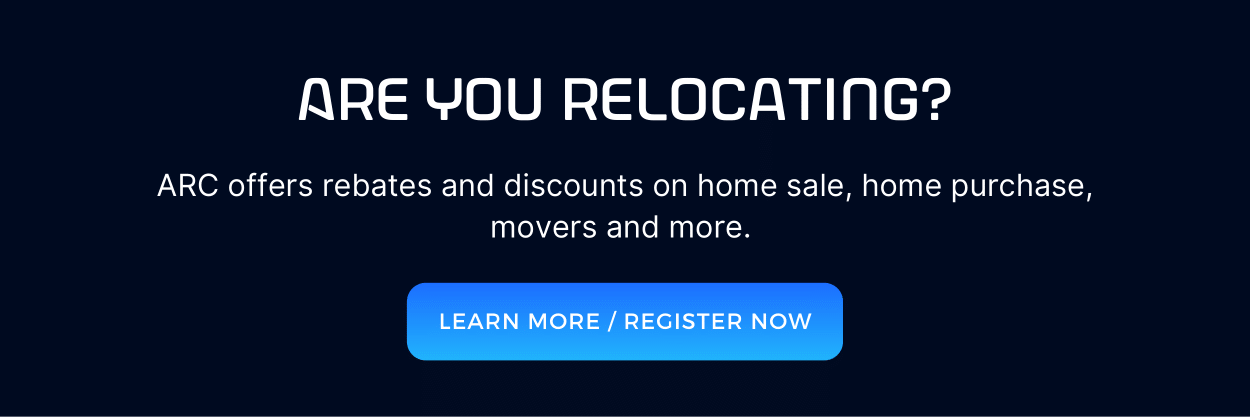Relocation Loans: Your Guide to Funding a Move

Moving to a new home can be an exciting but stressful time. Between packing up your belongings, finding a new place to live, and getting settled in an unfamiliar area, the costs associated with relocating can add up quickly. This is where a relocation loan can help.
A relocation loan is a type of personal loan used specifically to cover the costs of moving and getting established in a new place. Whether you’re moving for a new job, going to school, purchasing your first home, or just looking for a change of scenery, a relocation loan can provide the financing you need to make the transition smoothly.
In this guide, we’ll explain everything you need to know about relocation loans so you can determine if one might be the right option for your upcoming move.
What is a Relocation Loan?
A relocation loan is an unsecured personal loan that borrowers use to pay for moving-related expenses. The funds can be used to cover costs like:
- Renting a moving truck
- Packing supplies
- Movers
- Storage fees
- Utility connection fees
- Security deposits for a new rental home/apartment
- Down payment on a new home
- Temporary housing
- Any other costs related to relocating
Relocation loans provide lump-sum financing upfront, which borrowers then repay in fixed monthly installments over a set repayment term, usually 1-5 years. They typically have fixed interest rates and don’t require collateral like your home or car.
What Are the Benefits of Relocation Loans?
There are several advantages to using a relocation loan rather than tapping other sources of financing:
Convenience: With a single loan, you can cover all the various costs of your move at once. This helps simplify the process compared to charging expenses across multiple credit cards or taking out several small loans.
Predictable Payments: Relocation loans have fixed interest rates and terms. This means your monthly payments stay the same over the life of the loan, making it easy to budget.
May Offer Lower Rates Than Credit Cards: Credit cards often have high variable interest rates of 15% or more. Relocation loans for borrowers with good credit scores may offer more competitive rates starting under 10%.
Fast Access to Funds: Many lenders can fund relocation loans in as little as 1-3 business days once approved, providing quick access to funds when you need them for your move.
To help you save even more money, ARC Relocation offers a realtor rebate that can help you save thousands on the cost of a home in your new area.
What Credit Score is Needed?
As with any personal loan, your interest rate and approval chances will depend largely on your credit standing. Here are general credit score guidelines for relocation loans:
- Excellent Credit (720+): You’ll likely qualify for the lowest interest rates and most flexible loan terms.
- Good Credit (680-719): Approval is likely and you may qualify for competitive interest rates.
- Fair Credit (640-679): Getting approved is possible, but expect higher interest rates or smaller loan amounts.
- Poor Credit (639 or below): Qualifying for a relocation loan will be very difficult. Consider alternative options or improving your credit first.
Keep in mind, these are general ranges and each lender may have their own minimum score requirements. Checking with multiple lenders can increase your chances of getting approved.
How Much Can You Borrow with a Relocation Loan?
Loan amounts for relocation loans often range from $1,000 up to $50,000. The amount you can qualify to borrow will depend on factors like:
- Your income
- Debt-to-income ratio
- Credit score/history
- Cost of your move
- Lender’s policies
Be sure to only borrow what you need for relocation expenses so you don’t take on too much debt. Compare costs from multiple lenders to find the best loan amount and terms for your situation.
Finding the Best Relocation Loan Lender
As with any major financial product, it pays to shop around when looking for a relocation loan. Comparing offers from multiple lenders can help you find the best rates, fees, terms, and service.
National lenders like Lightstream, SoFi, and Upgrade offer online prequalification and can fund loans quickly. Local banks and credit unions may provide more personalized service. Peer-to-peer lenders like LendingClub also provide loan options.
We recommend getting prequalified quotes from several lenders without affecting your credit score. This lets you assess which ones are likely to approve you and offer the most competitive terms.
Then, you can complete a full application with your top pick lender when you’re ready to move forward.
Alternatives to Relocation Loans
If you have concerns about taking on debt, there are some alternatives to cover moving costs including:
- Save up money in advance by budgeting and cutting back on non-essential spending in preparation for your move.
- Ask your employer for relocation assistance. Some companies provide stipends, grants, or advances to cover employee moving costs.
- Use a 0% APR credit card. Look for cards offering 12-18 months of no interest financing and pay off the balance before the intro period ends to avoid finance charges.
- Borrow from friends/family. While less than ideal, a zero-interest, short-term loan from relatives can be a cost-effective way to fund your move when paid back promptly.
- Sell items you don’t need. Generate extra cash to put toward moving expenses by selling furniture, electronics, clothing items or other belongings you no longer want via Facebook Marketplace, OfferUp, Craigslist or a garage sale.
How to Apply for a Relocation Loan
If you’ve weighed the pros and cons and decided a relocation loan is right for your situation, here are the steps to take when applying:
- Check your credit reports and scores using a site like AnnualCreditReport.com and CreditKarma. This will help you understand your approval odds before applying.
- Research lenders and prequalify online. Compare loan terms, rates, fees and eligibility among top national lenders and local banks/credit unions.
- Choose a lender and complete your application. Provide documents to verify your income, identity, and employment. Be ready for a hard credit inquiry.
- Get approved and review your loan agreement. Make sure to understand the full terms before signing. Watch for origination fees.
- Provide payment instructions and get your funds. Once approved, the lender will deposit your loan amount directly into your bank account, often within just 1-3 days.
- Make your monthly payments. Be sure to make at least the minimum monthly payment on time each month to avoid late fees and credit damage. Consider paying extra to pay off your loan faster and save on interest.
With an informed borrowing strategy, a relocation loan can make moving to a new home or apartment much more manageable. Just be sure to only borrow what you need, shop for the best rates, and repay your loan responsibly.
We can help connect you with relocation loan experts. Contact ARC Relocation today to explore your options and learn more about developing a relocation strategy for your business.

